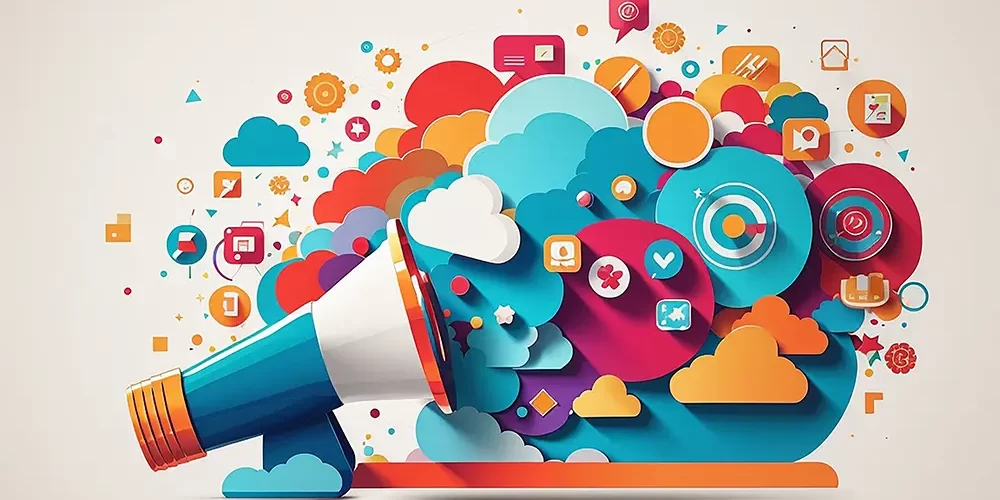Digital marketing has undergone a profound transformation over the past few decades, driven by technological advancements and shifting consumer behaviors. From its initial stages of email marketing and rudimentary banner ads, digital marketing has evolved into a sophisticated ecosystem leveraging data analytics, artificial intelligence, and immersive technologies. This article explores the key trends and innovations shaping the future of digital marketing.
The Early Days: Email and Banner Ads
In the 1990s, the advent of the Internet introduced new opportunities for marketers. Email marketing emerged as one of the first forms of digital marketing, allowing businesses to reach customers directly in their inboxes. Despite being rudimentary by today’s standards, early banner ads marked the beginning of online advertising. These static ads paved the way for more interactive and engaging formats.
The Rise of Social Media
The early 2000s saw the rise of social media platforms such as MySpace, Facebook, and Twitter, revolutionizing how brands interacted with consumers. Social media marketing enabled businesses to engage with their audience in real-time, fostering a sense of community and loyalty. The ability to create targeted ads based on user demographics and interests further enhanced the effectiveness of social media marketing.
Search Engine Optimization (SEO) and Content Marketing
As the internet became more crowded, the importance of search engine optimization (SEO) grew. SEO techniques evolved to ensure that content appeared prominently in search engine results, driving organic traffic to websites. Alongside SEO, content marketing gained prominence, with brands producing valuable, relevant content to attract and retain customers. This shift emphasized the importance of quality over quantity, with a focus on providing genuine value to the audience.
Mobile Marketing and the App Economy
The proliferation of smartphones in the late 2000s introduced a new era of mobile marketing. Brands optimized their websites for mobile devices and developed mobile apps to enhance user experience. The app economy created new avenues for engagement, with push notifications and in-app advertising becoming vital tools for reaching customers on the go.
Data Analytics and Personalization
The ability to collect and analyze vast amounts of data has revolutionized digital marketing. Data analytics enables marketers to understand consumer behavior, preferences, and trends with unprecedented accuracy. This wealth of information allows for highly personalized marketing strategies, tailoring messages to individual users based on their past interactions and predicted future behavior.
Artificial Intelligence and Automation
Artificial intelligence (AI) has been a game-changer in digital marketing, powering tools that enhance efficiency and effectiveness. AI-driven algorithms optimize ad targeting, content creation, and customer service. Chatbots, for instance, provide instant, personalized responses to customer queries, improving user experience and freeing up human resources for more complex tasks. Marketing automation platforms streamline repetitive tasks, ensuring consistent and timely communication with customers.
The Advent of Augmented Reality (AR) and Virtual Reality (VR)
Emerging technologies such as augmented reality (AR) and virtual reality (VR) are creating immersive experiences that captivate consumers. AR applications enable users to visualize products in their real-world environment before purchasing, while VR offers virtual tours and experiential marketing opportunities. These technologies are particularly impactful in industries such as retail, real estate, and tourism.
The Future: Ethical Marketing and Sustainability
As consumers become more conscious of ethical practices and sustainability, digital marketing is evolving to reflect these values. Brands are increasingly focusing on transparent, ethical marketing strategies that build trust and align with consumer values. Sustainable marketing practices, such as reducing digital carbon footprints and promoting eco-friendly products, are becoming integral to brand identity.
The evolution of digital marketing is marked by continuous innovation and adaptation. From the early days of email campaigns to the sophisticated, data-driven strategies of today, digital marketing has transformed how businesses connect with consumers. As technology advances and consumer expectations evolve, the future of digital marketing will undoubtedly bring new challenges and opportunities, emphasizing personalization, ethical practices, and immersive experiences.
Want to evolve your business with digital marketing that works? Get in touch with Marketing Apes to learn more.






